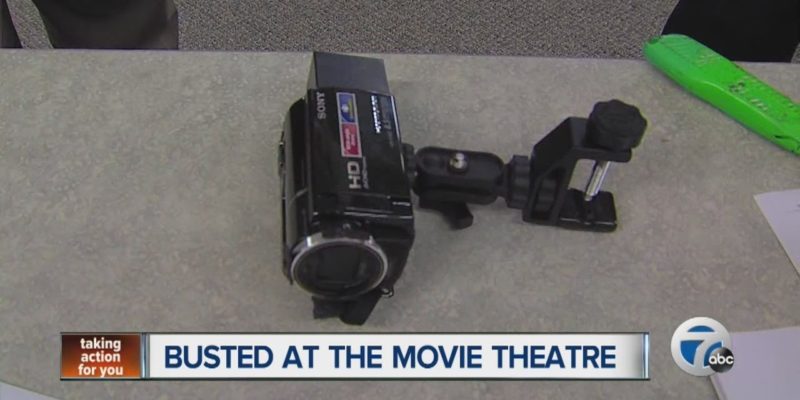
[ad_1]

The days of bringing a camcorder into the movie theater to bootleg new films are long gone. With the tremendous transformation in how modern movies are distributed to consumers, there’s also been a massive advancement in movie bootlegging a.k.a. piracy. And now, with studios focusing more on streaming rather than theaters, there’s been an increase in high-quality, pirated online versions of new movies, according to the Wall Street Journal.
In fact, the majority of new films may currently be accessed on piracy websites such as The Pirate Bay and LimeTorrents, or watched online on sites like Putlocker.
According to the WSJ, “Black Widow” was the most pirated movie in the world for three weeks after its release. And according to their research, many of the year’s biggest films went from official release to downloaded bootleg “nearly immediately.” After “Black Widow’s” disappointing opening weekend performance in theaters, despite excellent Thursday night advance screenings, theater owners and studios suspected that piracy had a part.

Scarlett Johansson and her team even ended up suing Disney+ over concerns about releasing “Black Widow” on its streaming service while movie was still in cinemas. The action was filed after Johansson’s pay discussions fell through when she expressed worries about piracy. And the National Association of Theatre Owners said in a follow up statement after the release: “How much money did everyone lose to simultaneous release piracy?”
Related: Theater Owners Furious with Disney as ‘Black Widow’ Collapses
The availability of high-quality pirated versions of movies has been aided by the digital delivery of films via streaming rather than only in cinemas. While studios have done a good job of using streaming to supplement theatrical releases during the epidemic, the continuous growth of piracy is posing a rising danger to studios and streaming providers.
When the Wall Street Journal checked in on a random Tuesday in August of this year, they discovered that 12 of the top 20 most pirated videos on The Pirate Bay had opened on studio streaming services rather than exclusively in cinemas. “We started to see a significant rise when lockdowns started,” said Andy Chatterley of piracy tracker Muso. “The Conjuring: The Devil Made Me Do It”, one of 2021’s major releases, grossed $201.4 million in theaters but was also, according to Muso, the most pirated movie in the world in June.
It reportedly topped 9.2 million illegal streams.

Illegal streams have also put a damper on new sign-ups for the streaming services:
When Disney released “Jungle Cruise,” starring Dwayne Johnson and Emily Blunt, on Disney+, a community of tens of thousands of people were both “seeding”—meaning sharing an illegal copy—and “leeching”—downloading the film free—within less than a day of its release, according to piracy tracking sites. Disney, which charged Disney+ users an extra $30 to watch the movie on the platform, said it grossed $30 million from subscribers on the film’s opening weekend.
According to the Wall Street Journal, IMAX and other theater chains are making deals with the studios to mitigate the impact of piracy.
Rich Gelfond, chief executive of theater chain IMAX Corp. , says an increase in pirating and declining revenues could have a lasting impact on Hollywood. “It will limit how great content is made and distributed,” he said.
While it isn’t known exactly how much piracy has shaped studios’ decisions, some are revisiting online release strategies crafted in the past year.
Earlier this month, AMC Entertainment Holdings Inc., AMC 1.31% the nation’s biggest theater chain, said it had struck a deal with Warner Bros. for next year, guaranteeing the studio’s films would enjoy 45 days of theatrical exclusivity before moving online. The agreement backtracked on an existing simultaneous-release strategy.
Disney has said it would continue to release films both online and in theaters, deciding the details on a film-by-film basis. Its next Marvel film, “Shang-Chi and the Legend of the Ten Rings” will be in theaters only.
Related: Could Piracy Save Cinemas and Slow Hollywood’s Streaming Growth?
When will these studios learn that if they stop making it so easy to get a pristine digital copy online, then consumers will eventually pay for the content?
[ad_2]





